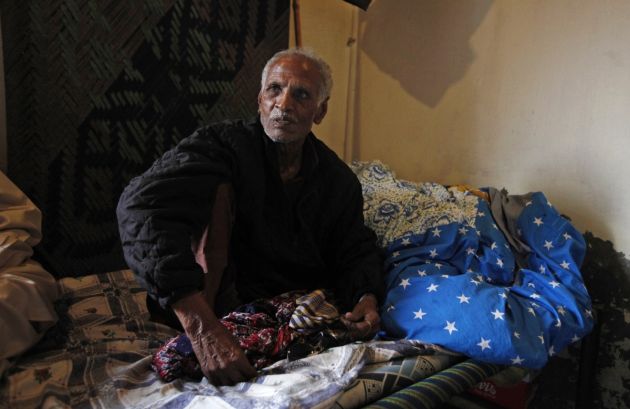Pakistani judge sentences Christian to death for blasphemy

LAHORE, Pakistan (Reuters) - A Pakistani judge has sentenced a Christian to death for blasphemy, lawyers said on Thursday, in the latest of a rising tide of such legal cases.
Judge Lahore Ghulam Murtaza Chaudhry sentenced Sawan Masih to hang after a Muslim said he had insulted the prophet Mohammed in the eastern city of Lahore a year ago.
The accusation against Masih sparked a riot in which Muslims burned more than 100 Christian homes.
"Today (the judge)announced his verdict that says that Sawan must be hanged and fined," said Nameem Shakir, a lawyer for the accused. Masih planned to appeal, he said.
At least 16 people are on death row in Pakistan for blasphemy and at least 20 others are serving life sentences.
Pakistan has not yet executed anyone for blasphemy. Members of religious minorities say they are often threatened with such accusations.
The law does not require evidence to be presented in court and there are no penalties for false allegations.
Courts often hesitate to hear evidence, fearful that reproducing it will also be considered blasphemous. Activists who want to reform the law say it is often abused by those seeking to grab money or property from the accused.
Often the accused do not even make it to court. At least 52 people accused of blasphemy have been lynched since 1990, according to a 2012 report from the Islamabad-based think tank the Center for Research and Security Studies.
"The severe penalties for Pakistan's blasphemy law make it one of the most repressive laws in the world," said a report released this month by the U.S. Commission on International Religious Freedom, a government advisory panel.
"Blasphemy charges commonly are used to intimidate members of religious minorities or others with whom the accusers disagree or have business or other conflicts."
Judges have been attacked for acquitting blasphemy defendants, the report said. (Writing by Katharine Houreld; editing by Andrew Roche)